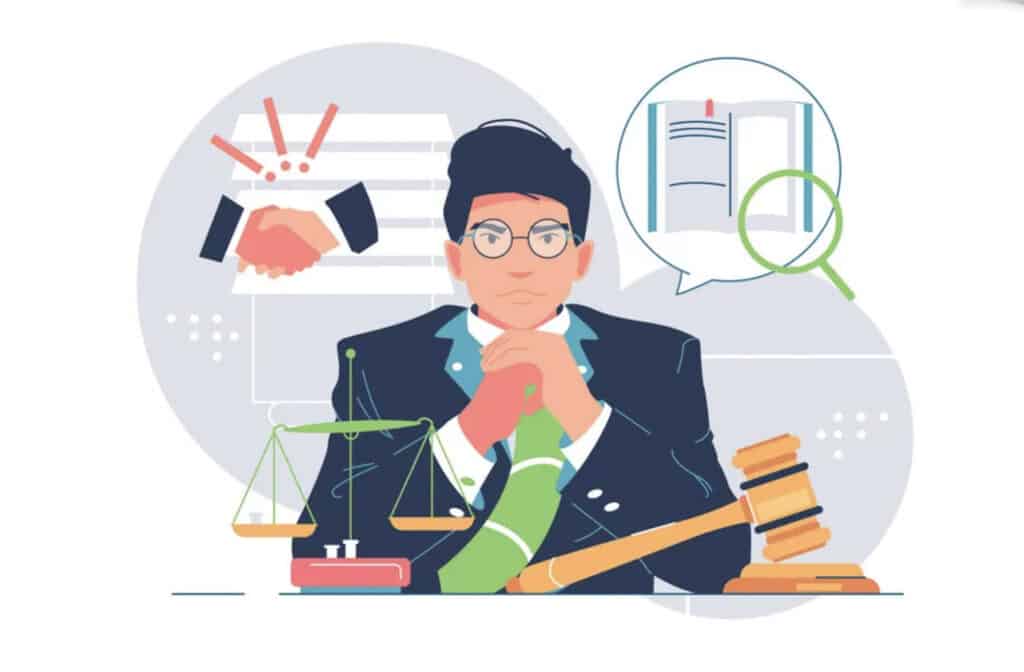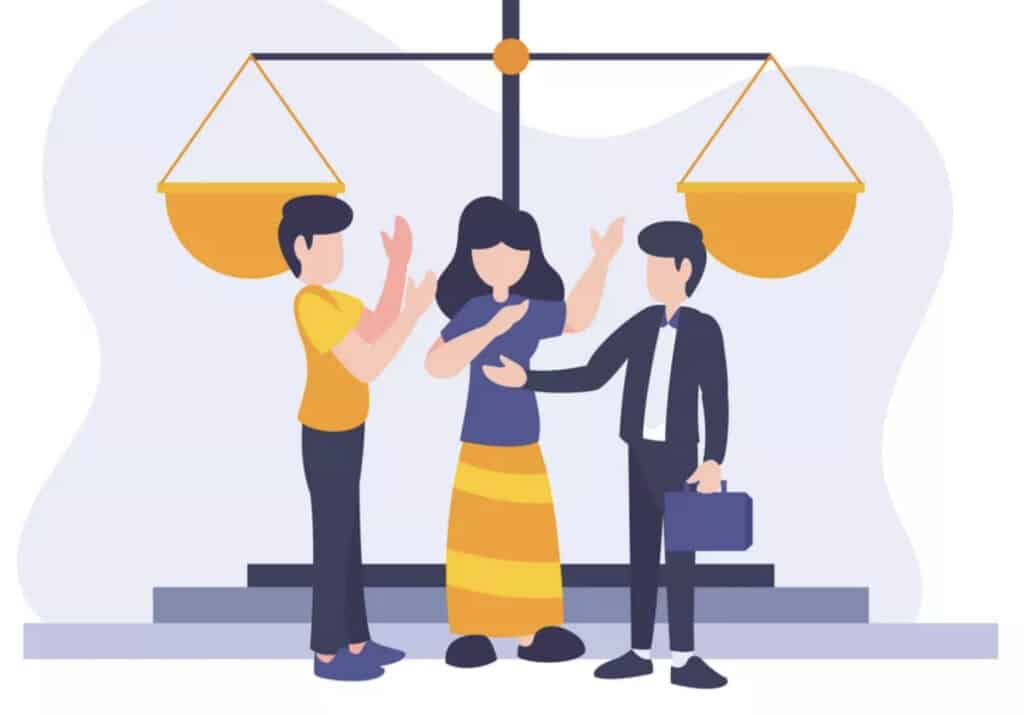Declaratory Suit in Bangladesh: Clearing Legal Confusion and Establishing Rights
In the realm of legal disputes concerning property rights or legal character, a declaratory suit can serve as a powerful tool for seeking clarification and resolution. Under Section 42 of the Specific Relief Act 1877 in Bangladesh, individuals who find their rights to property or legal character denied or in question have the right to approach a civil court and seek a declaration to establish their rights.
This article will delve into the concept of a declaratory suit, its essential elements, consequential relief, binding effects, procedure, and its significance in the civil legal framework of Bangladesh.
Understanding Declaratory Suit
A declaratory suit is initiated when a party seeks an authoritative pronouncement from a court regarding their right to property or the status of their legal character. Section 42 of the Specific Relief Act provides the legal framework for filing a declaratory suit in Bangladesh.

If an individual is entitled to any legal character or any right to property, but that right is denied by another person, the aggrieved party can file a suit seeking a declaration from the court.
The term “right to property” encompasses any legally recognized right, such as the right to a position or the right to an easement. On the other hand, “right to legal character” refers to rights acquired through personal qualification or association with a personal library.
Essential Elements of a Declaratory Suit
To file a declaratory suit, certain essential elements must be met:
- Legal Rights: The plaintiff must possess legal rights pertaining to property or legal character.
- Pre-Existing Rights: The rights claimed by the plaintiff must be pre-existing at the time of the suit, meaning they must have existed before the suit was filed and not as a result of a contract.
- Present Danger or Denial: There must be a present danger, denial, or claim against the plaintiff’s rights.
- Communication of Denial: The denial must be communicated to the plaintiff to provide a cause of action.
Consequential Relief in Declaratory Suit
Consequential relief refers to the relief that is necessary for the complete enjoyment of the right after the declaration is made. It aims to avoid multiple suits and resolve matters comprehensively. A plaintiff cannot seek mere declaration without consequential relief when it is essential for the full enjoyment of the property.

For instance, if a person has no possession of their immovable property and files a suit solely for the declaration of title, the suit would not be maintainable unless the recovery of possession is added as consequential relief. Section 8 of the Specific Relief Act allows the plaintiff to seek the recovery of possession along with the declaration under Section 42.
Binding Effects of Declaration
According to Section 43 of the Specific Relief Act, a declaration, if granted by the court, is not binding on everyone in general. It is only binding on the parties to the suit and those claiming under them. Additionally, if a party to the suit is a trustee, the declaration is binding on the beneficiaries of the trust.
Procedure and Limitation
The period of limitation for a declaratory suit is not explicitly defined in the Specific Relief Act. Therefore, the general rule of limitation applies, which is six years as per Article 120 of the Limitation Act.
In terms of court fees, since a declaratory suit solely seeks a declaration, the fixed court fee is Taka 300. However, if consequential relief is added to the suit, ad-valorem court fees must be paid for that additional relief.
Significance of Declaratory Suit
The declaratory suit holds significant importance in the civil legal framework of Bangladesh. It provides an avenue for individuals whose legal status has been violated, where direct remedies may not be available. Section 42 has widespread use
in civil suits, offering a means to establish and protect legal rights. To effectively utilize this provision, it is essential to have a thorough understanding of the law and its implications to ensure that time and effort invested yield fruitful outcomes.
The declaratory suit, as provided by Section 42 of the Specific Relief Act in Bangladesh, serves as a powerful legal recourse for individuals facing conflicts or confusion regarding their property rights or legal character. By seeking a declaration from the court, individuals can establish their rights and seek consequential relief.

Understanding the essential elements, binding effects, and procedural aspects of declaratory suits is crucial for navigating the civil legal system effectively.
Desire, requirement, and Object
The purpose of requesting such declaratory relief is to maintain the status quo between the parties. In a particular case, the court proposed a threefold classification for determining the scope of declaratory relief. First, it defines rights but provides no immediate relief. Second, it restores the plaintiffs’ lost rights and provides immediate relief. The court grants this as a preliminary measure of relief.
In addition, one of the primary goals is to circumvent the multiplicity of procedures. It is important to note, however, that a declaratory decree is a form of relief that can only be granted in the absence of specific performance and compensation.
In conclusion, it is evident that the purpose of a declaratory decree is to protect the legal status and legal rights from adverse consequences and allow the party to enjoy them peacefully, as well as to protect the peace and order when adverse possession is discovered.
Conditions
It is important to note that although the court has the discretion to grant relief, there are few conditions that appear to be met prima facie based on the facts of the case.
As is evident from a simple reading of the section, the first condition is that the plaintiff possesses a vested legal right or legal character, and the second condition is that the defendant has denied such a legal right or character, or that the defendant has an interest in denying such a legal right or character.
However, even if the conditions are met, it does not obligate the court to grant the requested relief. Nonetheless, the courts retain discretion in this regard. The plaintiff must demonstrate this privilege not only at the time of the lawsuit, but also at the time of the judgment. And that any relief sought after filing the lawsuit was not the one that should have been sought beforehand.

The fundamentals of declaratory relief
Important elements of declaratory relief include:
- There must be an actual, existing interest, as opposed to an abstract privilege.
- It is not sufficient for there to be no present interest based solely on a nearby possibility.
- It must not be based on speculative grounds and a denial of the same, i.e. there must be an immediate threat to the interest.
- The party requesting a declaratory judgment cannot also seek an execution judgment.
- In furtherance of the aforementioned factors, the declaratory decree is not granted in the following instances:
Authorities are likely to frustrate the relief if:
- It results in an injustice for the opposing party.
- It gives the aspirant an unfair advantage over the opposing party.
- It causes an undue loss to the opposing party.
Sphere and extent
The issuance of a declaratory judgment is circumscribed and should not be granted when the plaintiff has access to a remedy for consequential relief. In instances where this is not the case and no executor decree can be issued, the plaintiff may also be granted a declaration of his present and future rights.
In order to acquire a declaratory judgment, it is not necessary to have a right to relief of a consequential nature that could have been sought from the same court or one that is preparatory to seeking relief in other courts.
In addition, the provision only applies to lawsuits and not to applications, and it does not include all declaratory lawsuits. This indicates that the scope of this section is extremely broad. In another case, it was determined that there is no basis for declaratory relief when the plaintiff is not entitled to legal personality or any similar privilege.
This implies that declaratory relief is not a right of the plaintiff that would compel the court to grant it. The same was reaffirmed by the Gujarat High Court.
The decree obtained pursuant to this section is in personam, as opposed to in rem. This implies that it only binds the party who denies the other party’s authority.
Who can suit and who can be sued
Any person who has been denied the legal personality, but not necessarily the legal right, may file a lawsuit against the denier. Thus, the character or status should have been conferred by law, i.e., by birth and not by contract, on the individuals. Additionally, a legal privilege can be either personal or proprietary.
The declaratory relief is limited to legally enforceable rights only.
This action may be brought against anyone who has denied the right or character or has an interest in doing so.
How to Hire the best law firm in Bangladesh for Declaratory Suit in Bangladesh:
In legal matters, it is essential to have competent representation in order to achieve a favorable outcome. If you need to file a declaratory judgment action in Bangladesh, Tahmidur Rahman Remura Law Firm is a prominent choice. There are compelling reasons why you should consider employing them for your declaratory suit, given their extensive experience and commitment to client satisfaction.

In the first place, the Tahmidur Rahman Remura Law Firm has a team of highly competent and experienced lawyers who specialize in declaratory actions. Their extensive knowledge of the legal complexities involved in such cases enables them to offer comprehensive and strategic advice throughout the process.
Whether it’s determining the essential elements of your case or constructing a persuasive argument, their attorneys have the knowledge and skill to navigate the complexities of declaratory actions.
In addition, the law firm’s reputation advocates for itself. Numerous clients have been successfully represented by Tahmidur Rahman Remura Law Firm in declaratory actions, resulting in favorable outcomes.
Their demonstrated ability to obtain favorable outcomes for their clients is evidence of their competence and efficacy. You can be confident that by engaging them, you are entrusting your case to a firm with a track record of success.
GLOBAL OFFICES:
DHAKA: House 410, ROAD 29, Mohakhali DOHS
DUBAI: Rolex Building, L-12 Sheikh Zayed Road
LONDON: 1156, St Giles Avenue, 330 High Holborn, London, WC1V 7QH
Email Addresses:
info@trfirm.com
info@tahmidur.com
info@tahmidurrahman.com
24/7 Contact Numbers, Even During Holidays:
+8801708000660
+8801847220062
+8801708080817
